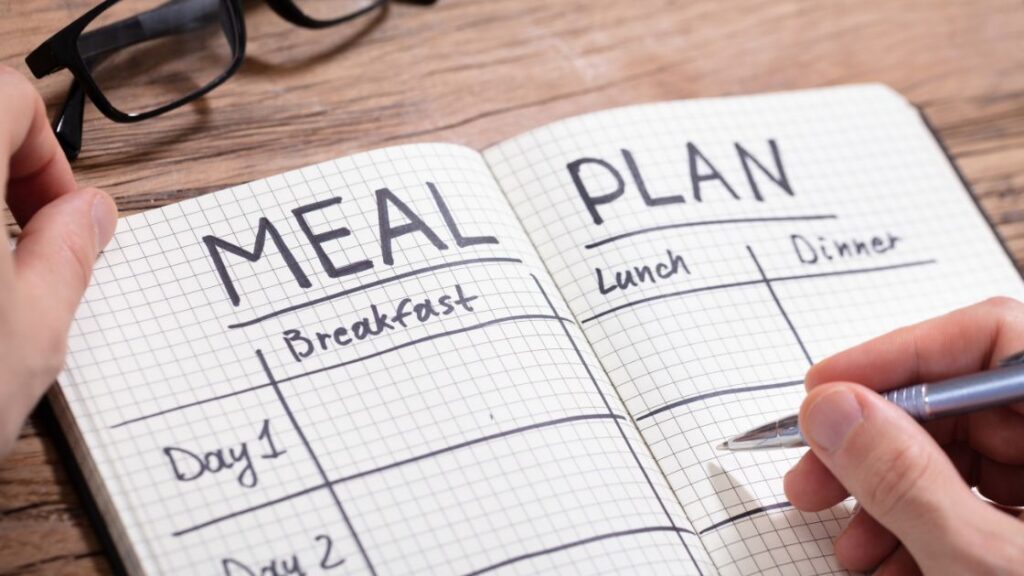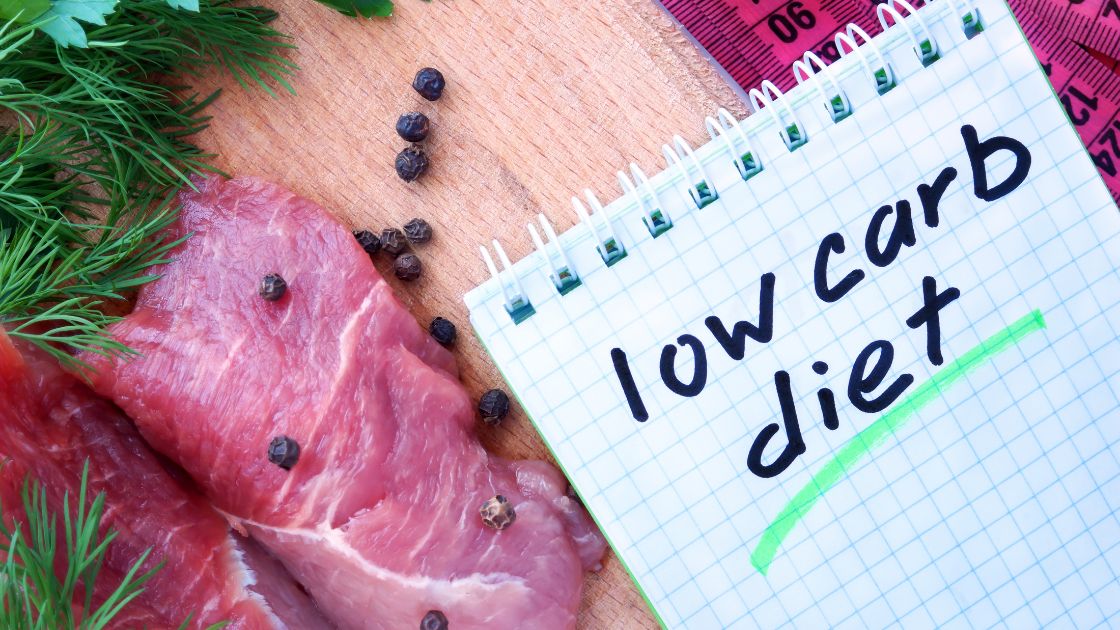You should be aware of a few things if you want to try a low carb diet to succeed with your weight-loss goals.
You will discover what it is specifically, the advantages of beginning this kind of diet, and some advice on making the transition more accessible in this blog.
Continue reading to better prepare before beginning a low-carb diet and enjoy its advantages.
What is a low-carb diet?
Like a low-fat diet, the low-carbohydrate diet can be a great way to lose weight. Also, it can help to improve your health and feel better overall.
That’s why there’s so much buzz around low-carb diets, but what exactly is it?
A low carb diet is a way to reduce the number of carbohydrates you eat to lose weight or improve your health.
There are many different ways to follow a low carb diet.
The secret is to select the healthiest carbohydrates and avoid the most harmful ones.
To select the best carbohydrates, the best option is to visit a nutritionist who can guide you.
Additionally, you must drink plenty of water and avoid excessive sugar intake when following this diet.

Arguments for starting a low-carb diet
There is no question that low carb diets can provide multiple benefits to your health. But, before starting one, it’s essential to understand the arguments favoring a low-carb diet.
Such a diet can help you lose weight or reduce your risk of chronic disease. Additionally, it is a good alternative for people suffering from type 2 diabetes since a low carbohydrate diet helps control blood glucose levels.
What to do before trying a low carb diet?
Before starting a low-carb diet, it is essential to consult with a doctor.
This way, you can ensure that you are following the diet protocol correctly and that you are not putting your health at risk.
Such a diet is not for everyone. Some people need a specific plan, and the best way to know if it is good for your health is to check with your Doctor.
The diet should include plenty of protein and healthy fats to help you feel full while taking it.
Avoid processed foods, sugary drinks, and grains, all high in carbohydrates and sugar.
Be patient; low carb diets can be tricky initially, but the long-term benefits are worth it.

Create a low-carb meal plan
There is no one-size-fits-all diet, so creating a diet plan tailored to your individual needs and preferences is essential.
Before starting the diet, ensure you know what foods to avoid and what nutrients your body needs to stay healthy.
Avoid high-glycemic foods, which quickly spike blood sugar levels, leading to unhealthy obesity rates.
Be sure to eat plenty of fresh vegetables, fruits, and whole grains while on the diet; these are low in calories but packed with health benefits.
And finally, track your food intake to ensure nutrient intake accuracy.
Carbohydrate refeeding
It is about doing carbohydrate refeeding that consists of periodically including carbohydrates while on a diet.
The procedure is to include proteins along with carbohydrates in a balanced manner.
Also, make sure to include enough healthy fats to feel full on a low-carb diet.
Limit all processed carbohydrates
When it comes to diet, it’s essential to understand the basics of what low-carb diets mean.
By following a low-carb diet, you can limit your intake of processed carbohydrates.
High-sugar foods can contribute to weight gain and health problems in other ways.
Here are some things to keep in mind when following a low-carb diet:
- Make sure all your foods are whole and minimally processed. This includes avoiding bread, pasta, rice, etc., as they contain high amounts of carbohydrates.
- It’s okay to occasionally enjoy some fruits or vegetables, as long as they are fresh and not highly processed. Opt for alternatives like berries instead of sugary fruit juices or raw spinach instead of frozen cubed sautéed spinach.
- Drink plenty of water daily; this is key during any type of diet regimen because staying hydrated helps digest food properly.
Try a keto diet, or maybe not?
This trendy diet is high in fat and low in carbohydrates. It is based on the idea that the body will start to burn fat for energy if we eat a few carbohydrates.
As a result, the liver produces ketone bodies, which are used as fuel. But this diet is not for everyone; it might be quite challenging to accomplish.
Therefore, get the advice of a qualified nutritionist before beginning this regimen.
Eat healthy food
It is essential to start the day eating healthy foods. This will give your body the essential vitamins, minerals, and nutrients to function at its best.
Plus, eating nutritious foods will keep you energized throughout the day. Carbohydrates are a vital part of a healthy diet.
However, you should ensure that you eat moderate amounts of them so you do not experience any negative effects such as weight gain or sugar cravings.
Eliminating carbohydrates from your daily diet can be counterintuitive. These are part of the fuel your body needs to get energy and work properly.
In this sense, if you want to follow a healthy diet, seek to reduce but never eliminate them.

What low-carb fruits and low-carb foods to eat?
Starting a low-carb diet can be daunting, but it is doable with proper planning and preparation. Before you start, make sure you have a list of low-carb fruits and foods you can include in your diet.
Some low-carb fruits include papaya, avocado, melon, watermelon, plum, strawberries, and raspberries.
At the same time, some low-carb foods include broccoli, zucchini, eggplant, asparagus, carrot, cauliflower, cabbage, tomato, cucumber, and spinach.
How to combine a low carbohydrate diet?
It can be challenging to follow a low carb diet independently, but doing your research first is essential.
Make sure you understand the basics of this diet before you start, like how many carbs to eat per day and how much protein.
Also, be sure to include plenty of fresh fruits, vegetables, and whole grains in your diet.
Keep track of your macros (protein, carbs, and fat), so you don’t overeat or undereat at any meal.
With some preparation and adherence to the basics, a low-carb diet can be a successful way to lose weight and improve your overall health.
Low carb snacks:
These wholesome, quick-to-make, low-carb snacks will help you feel satisfied if you get hungry in between meals:
- Greek yogurt with a fruit slice.
- Either one or two hard-boiled eggs.
- A few nuts.
- Some tiny carrots.
- The leftovers from the previous night.
- Cheese and some meat.
What to do when eating in restaurants?
It can be challenging to maintain a low-carb diet while eating out. Not only are the serving sizes frequently enormous, but some restaurant meals also come with sauces, sides, or condiments.
These complements usually are loaded with extra sugar or carbohydrates.
However, it’s generally simple to order low-carb meals at most eateries.
Here are some pointers to get you going:
- Choose a main meal that is based on meat or fish.
- Avoid sugary sodas and fruit juices in favor of simple water.
- Instead of bread, potatoes, or rice, choose extra veggies or a side salad.
- Request condiments, dressings, and sauces on the side to control your portion sizes.
- Before you go, review the menu to discover dishes that fit your daily carbohydrate allowance.
- To lessen the number of carbohydrates in your meal, think about taking half.
What aspects to take into account in a low-carb diet?
Short-term negative effects from a sharp reduction in carbohydrates include:
- Constipation.
- Headache.
- Muscular cramps.
Your body may convert fat into ketones for energy if you have severe carbohydrate restrictions. This is known as ketosis.
Bad breath, headaches, weariness, and weakness are some of the negative effects of ketosis.
Consider the proteins and fats you choose if you adopt a low-carb diet.
Eat less meat, high-fat dairy products, and other foods containing saturated and trans fats.
Other important notes on a low carbs diet
- A low-carb diet may achieve many positive things in our bodies and health. That is why we must follow a proper diet if we want a low-fat body.
- Following a proper eating plan does not mean completely eliminating carbohydrate intake. Just limit carbs a bit and choose the right carbs.
- Protein and fat should never be missing from a diet to lose weight. You should choose the best sources of protein and fats that are healthy. The best fats are avocado, olive oil, and peanuts.
- A low-carb diet can help you lose weight fast without leaving you feeling sluggish and lacking in energy. The important thing is to control the grams of carbs per day.
- To know the carbs you need daily, it is best to go to a dietitian. That specialist will know the best low-carb diet plan for you according to your needs.
- High fat, moderate protein, and little carbohydrate comprise a ketogenic diet’s bulk, so applying this diet is not bad if you want to lose weight.
- Foods high in protein and fiber should be the base of any diet to lose weight.
- Starchy foods are crucial to a balanced diet as our main carbohydrate source. A healthy, balanced diet should include some starchy foods every day.
- It is not advisable to choose carbohydrates randomly if you want to lose weight. For this, you must choose carbohydrates that have fewer calories per serving.
- The paleo diet excludes starches; you cannot consume carbohydrates. Each diet has pros and cons, but the source of carbs should never be eliminated.
Starting a low carb diet to lose weight
If you are considering embarking on a low carb diet, you now know the most important thing to consider.
This diet is low in sugar and carbohydrates, which can help with weight loss and improve blood sugar levels.
However, low-carb diets are not for everyone and should only be started after extensive research has been done.
Be sure to check with your doctor before starting the diet, as they may have other recommendations you should follow.
Once you have a good understanding of what to do, be sure to stick to your diet.







